The truth is that everything we do to survive in a system that only values certain bodies is okay. But we want there to be an honesty within yourself to say, I’m doing this to put up with these systems, I’m doing this to survive in a system, instead of I’m doing this because I’m not good enough or I’m doing this because I’m bad.
You're listening to Burnt Toast. This is the podcast where we talk about diet culture, fatphobia, parenting, and health. I'm Virginia Sole-Smith and I also write the Burnt Toast newsletter.
Today I am chatting with Hilary Kinavey and Dana Sturtevant. Hilary and Dana are the cofounders of the Center for Body Trust, a community based outpatient clinic and professional training institute. They are also the creators of “Body Trust,” a strength based, trauma informed, scientifically grounded healing modality that encourages movement towards a compassionate, weight inclusive model of radical self care to address body oppression, heal body shame, and associated patterns of chronic dieting and disordered eating.
And they are the authors of a new book out this week, Reclaiming Body Trust: A Path to Healing and Liberation. It came out two days ago and you, after this conversation, are really going to want to go get your copy!
So there are a lot of books in the body positive, anti-diet space that promise to help you work on your relationship with your body. And I want to be clear: Those books are super important. We need books and other tools to help people work on their relationships with their bodies. But Hilary and Dana do something different. They help us put our personal struggles with our bodies, with our weight, with our health, whatever it is, into the larger framework. They help us understand how our struggles fit into the systems of oppression we all live under. This is such an important piece of the puzzle that is left out of so many conversations around body positivity and intuitive eating. It’s such an important piece of the puzzle for anyone doing their own work, as well as folks who want to be contributing to larger social change. I hope we can continue the conversation in the comments. So, here are Hilary and Dana!
PS. Corinne and I are getting ready to do another AMA episode soon. And we need your questions! Put them here, so we stay organized.
Post-Publication Note: Dana let us know after this episode aired that credit for this episode title (which she also quotes in the conversation below) belongs to Dr. Crystal Jones. We apologize for not properly attributing that during the conversation.
Virginia
Let’s start by having each of you introduce yourselves.
Hilary
I’m Hilary. I am a cofounder of the Center for Body Trust, formerly BeNourished, and I am a therapist and a coach and I spend a lot of time doing training with healthcare professionals around helping them be better around people’s relationship with their body and addressing weight stigma in their work. And my business partner is Dana.
Dana
I’m Dana Sturtevant. I’m the dietitian. Sometimes I say “I’m the dietitian.”
Virginia
In your spookiest voice, I like it.
Dana
We’re a therapist/dietitian team. I worked in the dominant weight paradigm early in my career where I didn’t believe I was promoting dieting behaviors. I thought I was promoting healthy lifestyles. And then through years of that work and becoming disillusioned and starting to feel unethical, I was really curious about offering people a different approach. At the time, I was a yoga teacher—I no longer teach yoga—but I was really curious about the mindfulness and self-acceptance practices of yoga and also coming back into our bodies and how that could change people’s relationship with food and their bodies. And I knew nobody would hire me to do what I wanted to do. So I started a private practice and shortly thereafter met Hilary. And the other hat that I wear in my business is I train healthcare providers in motivational interviewing, which is a counseling style that is collaborative and less pathologizing and more humanizing of people.
Virginia
The two of you have written a brand new book called Reclaiming Body Trust. I was very lucky to get to read an early copy. It is absolutely remarkable. It’s really unlike anything else out there in this space. I think it’s meeting a need for a book that meets people where they are and helps them work through all of these issues and put them into the larger context of systems of oppression. There’s the self help books and then there’s books talking about systems of oppression, but you are bringing it all together. So, let’s talk a little bit about what inspired you to say, “We run this really all consuming business but also we should write a book.”
Hilary
We had always thought about writing a book, but it didn’t rise to the top because we’ve always been really immersed in running our programs and that is very consuming and is a full time job. And we’ve had practices and do trainings on the side. So it totally has not fit in. And then we got to a place where we wanted folks to have all these things that we’ve been saying for years in trainings and in workshops in a format that they can hold, really. That’s really exciting and that’s really accessible, you know? We were approached to write a book proposal after we were on the Dear Sugars podcast and we did that. And here we are, just a mere two years later. A pandemic, a few house moves, no problem.
Virginia
I’m sure it was a very relaxing book writing experience. Kind of one of those zen retreats.
Hilary
Very easeful.
But we really wanted this to be accessible. I consider myself to be a politicized therapist and coach. I do not separate politics from the change process. Our work is situated liberatory frameworks. We believe that this movement of weight inclusion is a liberatory process. And so that’s what we wanted this book to be about. Not so much situated in the bodies of individual people. Like, “How do I heal my relationship with food and body?” is a valid question, but what is the context in which we are trying to heal cannot be left out, and it’s so frequently left out in eating disorder settings and disordered eating settings. And it can’t be. People aren’t getting well and we’re missing this big piece of that big conversation.
Virginia
Why do you think it’s so often left out?
Hilary
Well, I think everything in the food and body space is tied to capitalism and white supremacy. And there is a lot of money to be made, in dieting and fitness and cosmetic industries, off of telling people what is wrong with them and then selling them solutions to that. In the eating disorder treatment space, we have a really big problem with only having services that are really fit for thin white women. And we tend to relegate folks with larger bodies, fat bodies, we continue to outsource them to diet culture spaces instead of really understanding that the overall climate around thinness, around healthism, around all of these things, is really creating the problem of disordered eating and eating disorders and dissatisfaction with the body. But there’s no money to be made if we dismantle and divest from these systems.
Virginia
This is true.
Hilary
So herein lies the problem. I think people don’t know how to tie these things together. I think people have suffered greatly in their bodies. And from what I know of talking to some folks who have suffered greatly in their bodies, it’s really hard for them to build a bridge between what’s happening in the world around bodies and what’s happened in their relationship with their own bodies.
Virginia
They don’t see how their struggle connects to these larger struggles.
Hilary
Yeah, I think we outsource our struggle to critical voices and shame and things within us that tend to uphold the dominant paradigm within us, right? Tend to keep us trying to perform and better ourselves. And we struggle to know that letting go, not suppressing our weight, things like that are actually what gets us free instead of trying to do it all right, or better.
Virginia
One thing I loved about the book is that you give these very concise explanations of a few concepts that I also think a lot about and I think are really tied to the need to put our personal struggles in this broader social context. So, I thought we could chat about a few of them. The first is healthism. What is healthism and how does it show up?
Dana
Healthism is this belief that our health is the be all and end all of our existence. If we’re not actively pursuing health through personal lifestyle changes, that we are somehow morally failing. It seems to be pretty individualistic and focused on individual lifestyle behaviors instead of looking at the broader context and social determinants of health and how social determinants of health have far greater impact on people’s health and wellbeing than their individual lifestyle choices.
One reason we started to talk about healthism in our work is how weight and health are always conflated. So many of our clients believe they gave up dieting years ago because they knew that it didn’t work. But they’ve been just trying to “watch what they eat” or just “being healthy.” And people really get stuck in that place because it upholds this dieting mindset. To really unhook from it all we need to keep laying down our thoughts about our health and our weight and nutrition and saying “not now” to nutrition, because to get out from underneath all of this conditioning, it’s really challenging. We talk about it in the book how it’s this bargaining phase of grief, where people make their lifestyle changes about their health, not their weight but they’re secretly dieting. So, that’s what I’m thinking about when I think about healthism.
Hilary
It’s a social construct. Some of it we can see, but a lot of it we can’t see. It’s hard to figure out what’s ours and what was never ours to begin with. What doesn’t belong to us, what doesn’t help us, what doesn’t need to live under our skin at all. So in the book, we talk a lot about ways to see that and begin the process of divesting from these cultural constructs and systems of harm that uphold themselves within us.
Virginia
The question that I hear often from readers and I’m sure you encounter all the time, too, is when folks will say something like—trigger warning for fat phobic comment— “Well, I can’t move the way I used to or my body hurts and I need to lose weight in order to feel better in my body.”
You don’t want to discount that they’re experiencing discomfort and pain in their knees, you don’t want to discount that they’re feeling like there has been a perceived loss of health that’s impacting how they function or move or feel in their bodies, but how do you take that experience of what’s happening in their body, but separate that from weight and separate that from healthism?
Hilary
Anything that we experience as a so-called side effect of weight, which, there could be a long debate about what those things are. We’ve all been conditioned to think that’s bad and correctable. Instead of really holding it to maybe something more akin to a disability justice framework that would say all bodies go through stuff. We’re not guaranteed able bodies for our lifetime. Hustling to become more able may actually cause me more harm in the long run or may put me down a path of having such an overemphasis on doing and production that I never achieve a relationship with myself that I want to be in for a lifetime. There’s a lot to unpack there.
And I want to say that just based on what I said, it can be so easy to get pulled into like, “okay, so be good, then I need to embrace that idea.” And the truth is that everything that we do to survive in the system that only values certain bodies is okay. But we want there to be an honesty within yourself to say, “I’m doing this to put up with these systems. I’m doing this to survive in a system” instead of “I’m doing this because I’m not good enough.” Or “I’m doing this because I’m bad.”
Virginia
That is a useful reframing. And it also gets a little bit at the next concept I wanted to talk about which is personal responsibility rhetoric. And I think that’s very related, right?
Dana
I think healthcare in general relies on a lot of personal responsibility rhetoric. One of the things I’m always doing when I’m training in motivational interviewing—I train in all kinds of fields, outside of our echo chamber. I’ve trained people who have never heard about Health at Every Size—is to talk about how health care really puts the responsibility of health on an individual person, instead of seeing it through a systemic lens and the way racism and poverty and oppression and stigma, trauma impact our health and our well being. I think health care providers and institutions at the leadership level, there’s a lot of pressure on frontline providers to get people to make these lifestyle changes so they’re not costing us so much money.
Let’s face it, it’s not about people’s health and wellbeing, it’s about costs. And so I think health care providers tend to rely on personal responsibility rhetoric, like “if you get sick, it’s your fault.” That’s a big part of healthism, is if you get sick, it’s your fault. There’s something you could have done to prevent it and there’s some magical eating plan that’s gonna make it all go away and be better. There’s a fitness plan that will make it all go away and be better. That’s what I think of when I think of relying on that personal responsibility rhetoric.
Virginia
It’s interesting, too, because it’s making it our problem while telling us to define our health according to all these external rules. It’s such a fascinating disconnect that you’re the one getting it wrong, but it’s because you’re not doing it how we told you you have to do it.
Hilary
It’s pretty insidious.
Dana
You can put all these healthcare providers in a room and ask them to define health, and nobody’s going to be able to come up with a definition that everybody agrees on. So, when we’re talking to our clients and they’re telling us that health is important, it’s a value of theirs. We say, “Nobody is required to pursue health to be deemed worthy of love, respect, or belonging.” When people are really hooked into that place of wanting to be healthy and we talk to people about what does that mean to you, when you say the word ‘health’? How do you define it? How would you know if you were ‘healthy’?Having them unpack the ways we’ve been socialized to think about health, so that they have a stronger analysis around all the factors that impact our health and our wellbeing.
Virginia
I remember the last time we spoke, it was an interview for a Health Magazine piece about cultural competency and healthcare. I think we were talking about this idea that health is actually a very personal concept to define on your own terms. I think you said something like “daily heroin use could be health for somebody,” and I couldn’t use that quote in the Health magazine piece. But I think about it really often when I think about trying to unpack healthism, because, it was a great example of how this is such a personal thing. Somebody’s goals and priorities and access to resources and all of that is going to vary so much. So why are we trying to ascribe this giant overarching definition to everybody?
Hilary
Yeah, we can’t. There’s lived experience and access and what kind of support and help is available, what kind of community care is available. All of these factor into what is the best decision for me to maintain my life and to stay connected to my people in my life. The things that make me me.
Virginia
Then the last concept I just wanted to quickly touch on which may be newer to my audience is this idea of bootstrapping, which I think certainly dovetails into the whole personal responsibility thing. But it’s such a uniquely American value, I think.
Hilary
It is. In the United States, if you do it all right, you can have the American dream. And if you just work your ass off endlessly forever, you will arrive. In the context of immigration survival, it’s about access to resources and things like that. In the context of diet culture, we keep just trying to be better and better and better. Making ourselves into this two dimensional version of health or wellbeing. What has irked me throughout my career as a therapist in this space is like, Okay, what gets left behind if all we’re doing is trying to become an image of something that may or may not even exist, or that may be a caricature anyway?
Bootstrapping to me is like all that we put aside within ourselves in order to make something possible. And that is something that’s very American and very survivalist, of course. But we often leave out that that has an impact on our emotional and psychological well being, and that we don’t necessarily get to know ourselves well if we’re always trying to become something else.
Virginia
Definitely. And it just reminds me of, again, this, this narrow definition of what health is, and the idea that you should sacrifice so much to achieve it. When folks are told weight loss is necessary for X health health outcome, setting aside the fact that you probably won’t achieve that weight loss, there’s never any discussion of the side effects of the pursuit of that weight loss and the toll that takes.
Hilary
Exactly. Yes, yes.
Virginia
So many books around body positivity and intuitive eating are written fairly directly to, as you said with eating disorder treatment, white, cisgender, thin women. I mean, that’s a valid criticism of my own work, something I’m definitely working on. But I was just struck over and over again, in reading your work, how inclusive it is. And especially, how much time you spent in really thoughtful explorations of trans bodied experiences. So I would just love to hear a little more about why that was so important to you to do and also how you, as two white women, went about prioritizing and achieving this inclusivity in the work.
Dana
We have been working on our own liberatory consciousness for many, many, many years now. One of the frameworks we use is Barbara Love’s liberatory consciousness, which is something we learned from Desiree Adaway and Ericka Hines, who have both consistently put upon us that we must situate our work in liberatory frameworks. When we’re doing our anti-oppression work and our anti-racism work, we’re developing this liberatory consciousness.
I was thinking about, when Hilary was talking about eating disorder treatment earlier, I was like, “all are welcome here” is very different than “this was made with you in mind.” So, a lot of treatment centers out there are “all are welcome here.” “You’re all welcome here!” We don’t have gender neutral bathrooms, but you’re welcome here. We’re gonna do a body acceptance group where we’re primarily talking about cisgender people, but all are welcome here. Well, I don’t think we should talk about body acceptance with trans and nonbinary people. Initially, that’s not what we talk about, eventually it could be helpful. That’s not where we start, we’re talking about gender affirmation not body acceptance with people who are trans and nonbinary.
One of the biggest things was, as a more diverse group of people were showing up to our workshops and retreats, as we were developing our own liberatory consciousness, we really started to revise all of our programs and workshops so that people really felt like they weren’t just welcome here, but we were really speaking to them directly. And you know, it’s through our own learning and unlearning and devoting time to reading books only written by people of marginalized identities and going to trainings and learning about neurodiversity, and all of these things that helped us try to create a book that speaks to a broader audience than simply white women.
Virginia
For a long time in women’s media, there was this push to be more inclusive. But what that would mean is the editor would say, “when you find five women to interview for this piece, make sure two are women of color, and one is gay.” Just like boxes we’re checking to make sure we’re hitting the diversity buttons. And it’s such a different thing. I mean, that’s not inclusivity. It’s just not.
Hilary
Well, and with the number of books out there around eating and disordered eating and body positivity, it’s remarkable that they don’t speak to the trans experience. Because trans folks, we know, have the highest rate of eating disorder. And while we, I don’t think, as two white women should ever be the ones primarily addressing that or developing programs that support that, I could not think of putting out a book without having a way of speaking more directly to that trans experience. So we did have a nonbinary psychologist, Sand Chang, who’s a Body Trust provider, write a letter to trans folks in the book and that felt like one way we could say we see you and we see your experience and we don’t want it to be erased.
Virginia
It’s a beautiful part of the book. So important.
Dana
We really wanted to feature people’s stories, too, and make sure that we weren’t speaking for people. So we asked people to submit body stories, we did a questionnaire of people who’ve been in our programs, and we pulled a lot of quotes so people could hear directly from folks who’ve done this work who hold a variety of identities and positionality on things.
Hilary
We don’t want our book to be the like, “here’s your 10 steps to freedom, follow our path.” We’re trying to shine a light on all the things that are in the way of people having fuller access to their own experience and the healing process that’s inherent within them. And that is really more of what the book is trying to do. Not so much trying to prescribe a path for all people.
Virginia
Well, I guess to wrap up, I’d love to just give some thoughts—for folks who are just beginning this work or even just thinking about beginning—on common misconceptions. I mean, I’m sure a big one is people come in assuming this is what’s gonna finally make them lose weight. But anything else like that, that you think’s important for people to know or be thinking about at the beginning of this work?
Hilary
I would say this isn’t going to feel like anything you’ve done before. So, good news and bad news, right? You’re not going to get that initial new plan high from this book, but you are going to be introduced to parts of yourself that have been orphaned off or lost to this extreme hustle around our bodies. This is a slightly longer game. And I don’t think you’ll be disappointed by it. We want everyone who approaches our work to know straight off the bat that we don’t believe the ways you’ve suffered around your body have been your fault. And we want to show you why we know that.
Dana
I think the common misconception of this work is that it’s the “fuck it” plan. Especially when people are new to this and they start talking to their relatives about it or the people in their life about it. This is like developing a language and when we’re new to it, we’re hardly understanding it ourselves, and then we’re trying to tell people, if people are asking us or wanting to tell people, sometimes we don’t have the language for it. And then, people often misinterpret this, you know, if you’re not focusing on your weight, and your health people interpret it as the “fuck it” plan. And so, this is just a really radically different way of showing up for yourself in the world and for other bodies in the world and challenging our conditioning. But there’s a big difference between letting go and giving up. We would not describe this as the “fuck it” plan.
Virginia
You’re actually fighting for something way more profound.
Dana
And we need people to do this work. There’s a phenomenon we see in this work where people want it for everybody else, but believe there’s a different set of rules for people like “me,” in air quotes. That can be a common misconception: “Oh, this is good, but I have diabetes,” or “this is good for them but I have joint pain.” And this is for everybody. There is not a different set of rules for people like you.
Virginia
So important. Well, thank you. I’m so excited for this book to be reaching folks because everybody can be doing this work.
Butter for Your Burnt Toast
Hilary
I’m obsessed with the show on Apple TV called Home. I want to talk to anyone else who is watching it. It’s like a docuseries kind of thing on people who have made homes that fit their lives or address a problem in some way. It’s leading me into an investigation around ideas of home and how we make ourselves at home. How we include others in it. I don’t even have words for why I’m obsessed with it, but I’m totally obsessed and I want everyone to watch it. There’s two seasons.
Virginia
Sounds fascinating.
Hilary
And I’m obsessed with my white golden retriever, Arrow.
Virginia
Oh, I’ve seen pictures of Arrow. Very, very cute.
Hilary
He’s a dream. He’s a dream boy for sure.
Virginia
That’s a good one. Dana, what about you?
Dana
Well, I just got my hot tub back up and running yesterday. I filled it up yesterday. And it was 100 degrees here and I got in the water. I filled it up and then didn’t turn it on and just got in the water.
Virginia
Oh, got in the cold water.
Dana
Yeah, hung out for the afternoon. And it was amazing. I’m a water girl. I go to the Japanese garden here in Portland and there’s lots of water features in there, so you can’t walk through there without hearing the water trickle.
Virginia
I love that.
Dana
I love spending a morning a week up in there. I come out a different person compared to when I walk in. My nervous system is so calm when I walk out of there. And then I’m loving these these local English muffins.
Hilary
From Sparrow Bakery, I just had them this morning, too, for breakfast, and they are so damn good.
Virginia
I am also a big hot tub proponent and water proponent. We have a debate in our house about the appropriate water temperature based on the weather because I kind of always want it to be a hot tub. I just love being in hot water so much. But other people I live with feel that because it’s 100 degrees, It should be cool and refreshing. It’s a current debate we’re having.
Hilary
Sounds like you need two hot tubs.
Virginia
Right? Feels like such a great solution.
Hilary
Yeah, you’re welcome. You’re welcome. No problem.
Virginia
My recommendation this week is also heat related. It’s my heating pad that I am living on right now. Because I am in a lower back spasm situation, it’s an ongoing journey in my life at the moment. And I just want to give a shout out to heating pads and heated car seats that are really making my life a lot more functional.
Hilary
Yeah, heating pads are kind of a forgotten item. But they’re so essential
Virginia
And they’re not expensive. This is a $29 one from Target. I just carry it around the house with me as needed.
Hilary
And plug it in?
Virginia
Depending on the day, yup. One of my daughters is actually always trying to steal it and I’m like you don’t need this, you’re a child. No. You can’t have it. Maybe for a birthday or something, I’ll get her her own heating pad. So yeah, anyway, I realize it is summer it is 100 degrees. Nobody actually wants to be as hot as I do. So that’s my recommendation if you have any kind of pain or just like cozy things.
Dana
Yes.
Virginia
Well let’s wrap up by having you tell listeners how we find you? How do we support your work? I want everyone to go buy Reclaiming Body Trust. What do we need to know?
Dana
We have recently rebranded. We’ve changed our business name from BeNourished to Center for Body Trust so you can find us there. We are not on TikTok, but we’re on Twitter, Facebook, and Instagram. Instagram is kind of our primary engagement. If you go to our website, you can learn more about the book and you can sign up for our newsletter, where you’ll get updates from us. We have a Body Trust Tuesday newsletter that we send out every Tuesday with body trust message. The book is out now!
Virginia
So people should go buy it immediately! Well, thank you both so much for being here. It’s such a pleasure.
The Burnt Toast Podcast is produced and hosted by me, Virginia Sole-Smith. You can follow me on Instagram or Twitter.
Burnt Toast transcripts and essays are edited and formatted by Corinne Fay, who runs @SellTradePlus, an Instagram account where you can buy and sell plus size clothing.
The Burnt Toast logo is by Deanna Lowe.
Our theme music is by Jeff Bailey and Chris Maxwell.
Tommy Harron is our audio engineer.
Thanks for listening and for supporting independent anti-diet journalism.

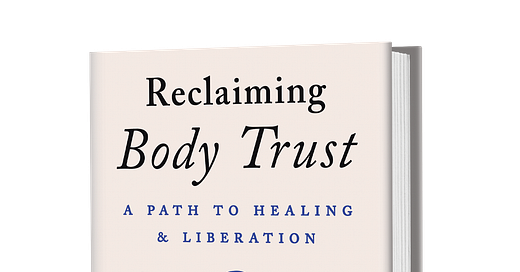


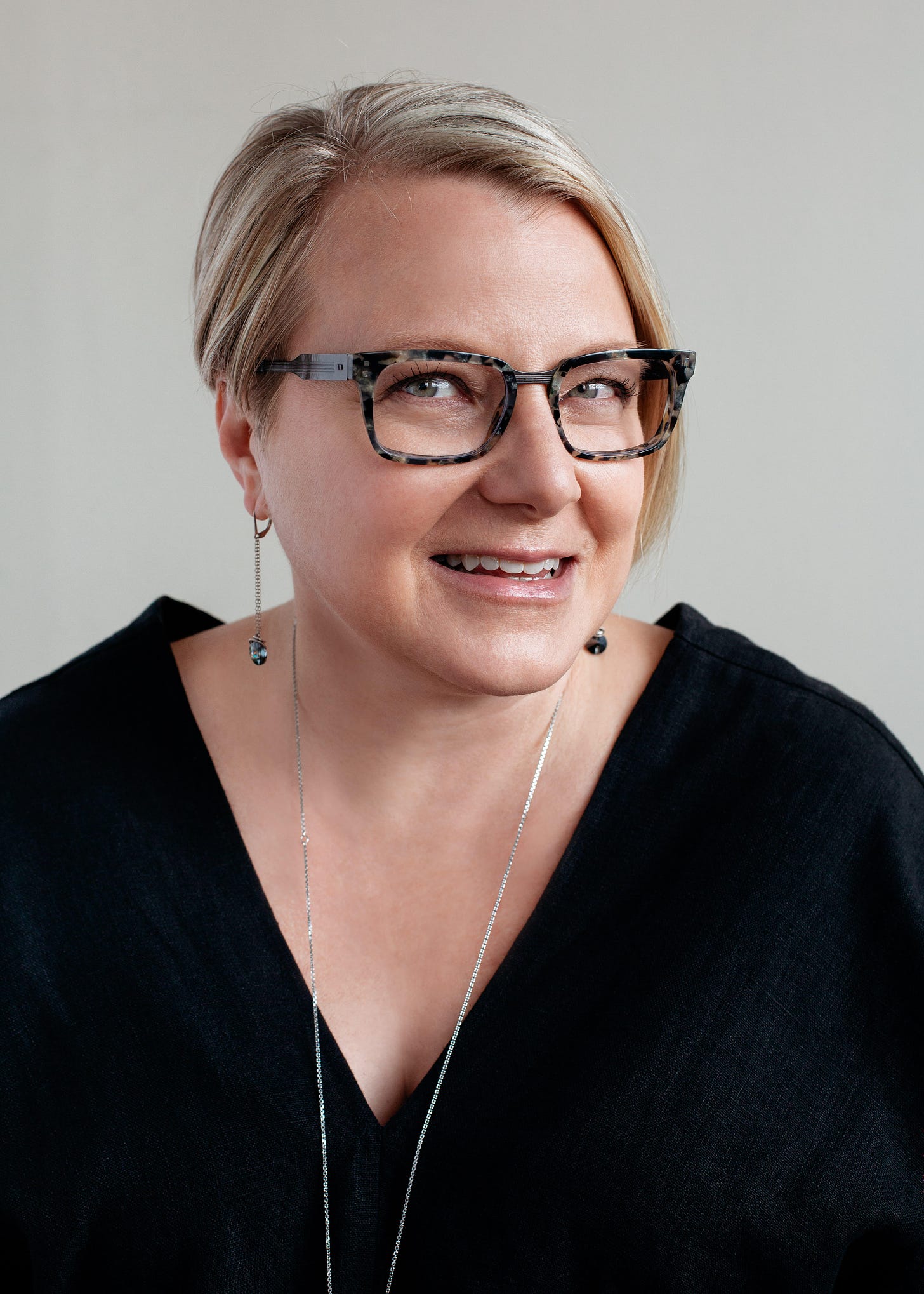





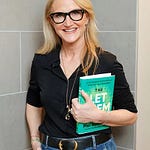
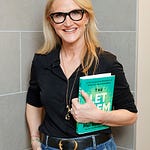


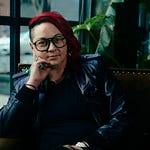

Share this post